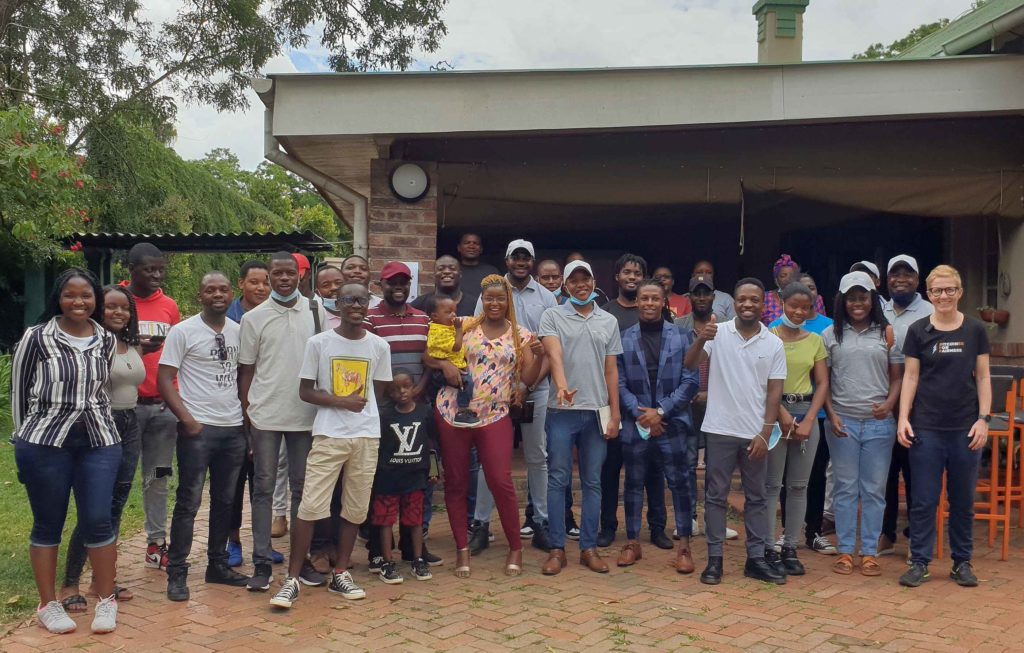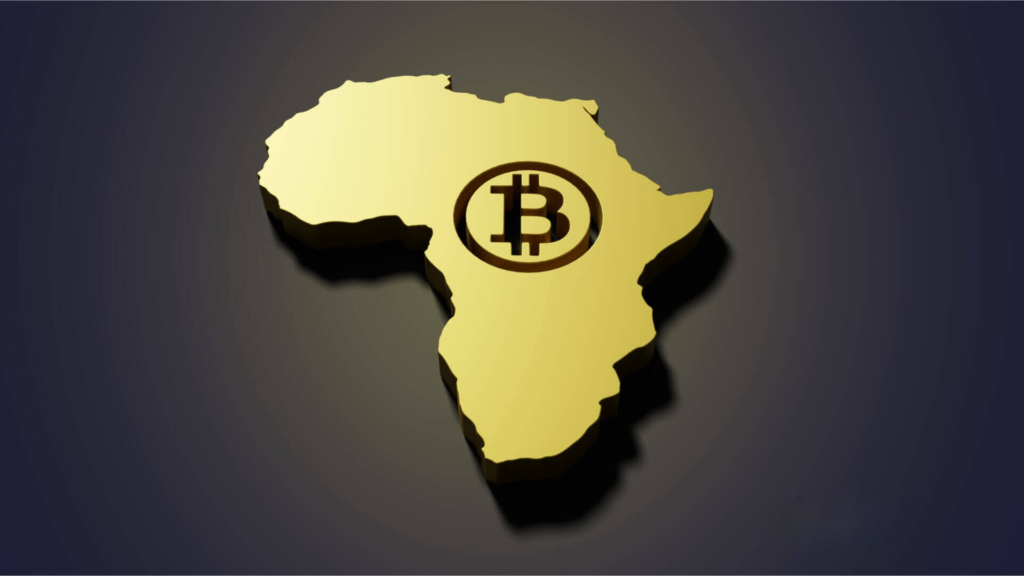Bitcoin, as well as other crypto, has had a wild run in the past year. In the face of this, however, the African Bitcoin community has remained unfazed.
Anita Posch is a digital nomad who has spent the past two years travelling Africa as a Bitcoin educator and teaches Bitcoin at grassroots levels. For Posch, who started a learning platform titled Crack The Orange, Bitcoin has one goal; facilitating a more just financial system. She believes in the potential of Bitcoin as an equaliser, giving people across the world access to the same monetary system and is committing a lot of time and effort to that gospel.
On Thursday, August 18, 2023, Bitcoin hit a new low as it fell over 8% to rest at $26,172, its biggest one-day drop since FTX collapsed in November 2022. Hundreds of thousands of traders liquidated about $500 million worth of the digital currency in 24 hours amid rumours that Space X had sold off all the Bitcoin they were holding.
The past year has been a wild ride for Bitcoin and other cryptocurrencies. The collapse of FTX triggered a lot of speculation around the legitimacy and fate of crypto, with investors liquidating their remaining assets and startups folding in the face of loss and limited capital. All of these sent the prices of digital assets plummeting, as the price of Bitcoin fell 22% percent in a day. The asset has since regained its losses since then.
In 2022, I spoke to a number of Bitcoin maximalists working on Bitcoin-related projects across the continent. There were a lot of elaborate plans on what Bitcoin could do for Africa, including plans for a Bitcoin village in Lagos, and Machankura, a custodial wallet that allows people to send and receive Bitcoin via USSD codes. One year and multiple scandals later, Bitcoiners still believe that real Bitcoin has largely been unaffected.
According to Posch, who is currently in Zambia, people who really understand Bitcoin aren’t bothered by the price fluctuation and donations to her non-profit haven’t really been affected.
“Bitcoin is not a game for you to win quick, free money, and that is the mentality we are working to combat. Sometimes people are short-sighted, and understandably so, because they need money and they need it fast, which is what causes a lot of the problems we keep hearing about. The goal of many people using Bitcoin is to save for the long term, and going by that, Bitcoin is the best currency to do that with. You might say the dollar or pound are better but even those currencies are currently being racked by inflation.”
“We ensure that we tell people in our communities to only invest money for the long-term and not the one they need immediately. Don’t risk all your money just because you’re looking for quick returns. Bitcoin has a lot of functionality, but it is not a get-rich-quick scheme,” she shared.

Posch’s Bitcoin platform, Crack The Orange, teaches people about the complexities of Bitcoin and its uses. For her, it is crucial at this stage where there are a lot of wrong assumptions about the currency and a lot of ignorance surrounding its potential.
“I’ve worked on Bitcoin education and have reached hundreds of people. However, the point of this is to build something that’s long-lasting and sustainable because there’s only so much that I can do. I’m doing this so that people from these communities can learn themselves even when I’m not there, and even teach others. There are a lot of opportunities for people who understand Bitcoin out there and my goal is to get people enlightened and possibly plugged into these opportunities.”
All across Africa, there are people like Posch, who still believe in the power of Bitcoin, regardless of the scandals and fluctuations in price. Abubakar Nur Khalil, CEO of Bitcoin VC firm, Recursive Capital is one of such people. According to Khalil, a big mistake that the Bitcoin community made was allowing themselves to be lumped into a broader crypto industry.
“This kind of framing harms people, as they are often unfamiliar with the technicalities behind how projects, including Bitcoin, work and their differences, which encourages misinformation. This misinformation puts unsuspecting people on a path of becoming bankrupt, ultimately disillusioned with the space, uninterested in any legitimate benefits of Bitcoin, and only poisons the well,” he wrote.
According to them, their operations as a Bitcoin organisation have continued per usual despite everything that has happened. In his article, Khalil shared that there has even been a significant increase in the quality of projects that come through their pipeline. “Previously, the messaging of ‘crypto VC’ only filled our inbox with projects that were either outright scams, well-dressed yet-to-be-uncovered scams, or impractical ideas.”
For years now, Bitcoin maximalists have insisted on a large difference between Bitcoin and other cryptocurrencies, asserting that Bitcoin is the only digital currency worth paying attention to. In this article from the Bitcoin Magazine, Jimmy Song writes that “Bitcoin is the original and very different from ‘crypto’ projects, which are all basically cheap knockoffs. Bitcoin has no central controller, there aren’t misaligned incentives, the people involved have no special rights and there’s no marketing team.” According to Bitcoiners, it is this difference that will make Bitcoin stand the test of time and continue to operate even while the price is shaky.
For Heritage Falodun, the founder of the Bitcoin advocacy community, DigiOats, they’ve been working extra hard to shift the interest in Bitcoin beyond being an investment with the possibility of high returns to its other functionalities like facilitating financial innovation. According to Falodun, the bubble of crypto has burst and a lot more people are open-eyed and more critical of Bitcoin.
“We have to teach people how to protect themselves from centralised exchanges in terms of creating private keys to store their Bitcoin. These days, it is not enough to just tell people revolutionary objectives or theories like ‘Bitcoin has the potential to change lives’, you have to show them how and give realistic, practical examples. Bitcoin advocacy now involves doing the actual work, and although the adoption rates have slowed due to all the recent happenings— including the forex exchange rates, we’re doing the work to advocate for more innovation as opposed to only ways people can make a profit,” he shared with TechCabal.
While Bitcoin’s blockchain technology is truly innovative and has become a game-changer in the finance world, a considerable amount of interest in the currency stemmed from its potential to yield high returns as quickly as possible and its promise of decentralisation. In the past year, a lot of faith and interest in Bitcoin has waned, and this shift in public perception will undoubtedly affect what Bitcoin advocacy on the continent looks like in the future.
Have you got your tickets to TechCabal’s Moonshot Conference? Click here to do so now!















